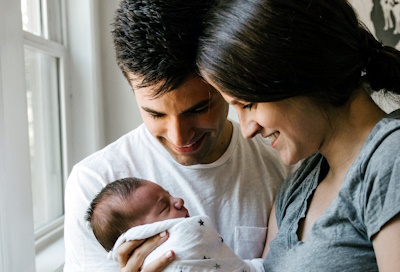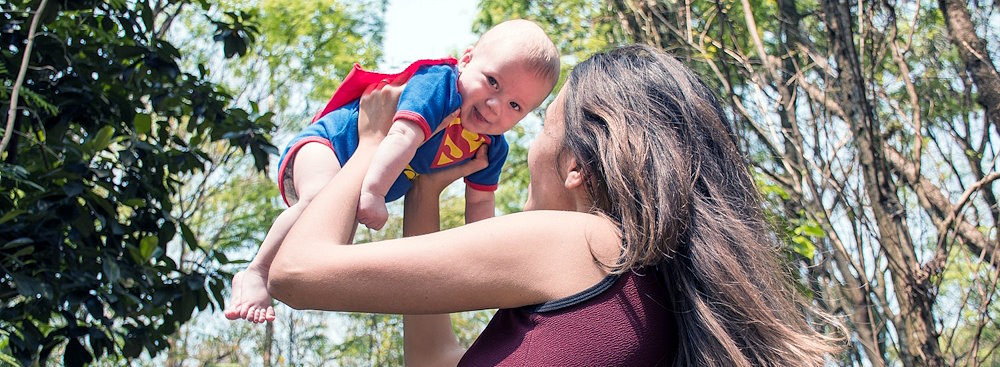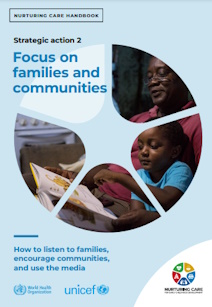Countries are at different stages of advancing nurturing care with and through health systems. Small and big changes are happening at national and sub-national levels. The information provided on this page gives you a glimpse into what is happening where under each of the five strategic actions.
Raising children website
This website provides parents information on a wide range of topics around child health, development and well-being. It is all based on evidence, and covers birth to the end of adolescence. Many topics are available in several languages, including Arabic, Auslan, Burmese, Cantonese, Dari, Dinka, Hakha Chin, Hindi, Indonesia, Korean Mandarin, Nuer, Persian, Swahili, Tamil, Turkish and Vietnamese. More.
Supporting parents in-person and online
Several ministries and partners are working together to help parents raise young children who are healthy, smart, capable, and safe. The programmes include in-person parenting sessions and the ParentingTips platform, which works through the phone.
Community care groups
In the Nurturing Care Group Model, implemented by World Vision in over 28 countries, volunteers are trained on messages related to nurturing care, caregiver stress reduction techniques and identifying and reporting violence against children. An evaluation showed significant improvements in water, sanitation and health environments, with parents reporting they use less physical punishment. More.
Nurturing neighbourhoods
The Nurturing Neighbourhoods Challenge works with Indian cities and their partners to adopt an early childhood lens in the planning and management of Indian cities. The Initiative seeks to make cities safe, playful, accessible, inclusive and green for children and their families. More.
Services aligned to families’ needs
Ummeed Child Development Center regularly conducts needs assessments with the community health workers and the parents. This feedback enables Ummeed to refine their services to align to the needs of the parents they seek to support, parents of children at risk of or experiencing developmental difficulties. More.
Middle East
Ahlan Simsim (Welcome Sesame)
Ahlan Simsim (Welcome Sesame) supports caregivers of young children affected by displacement in Iraq, Jordan, Lebanon and Syria. Through a combination of home visits and group parenting sessions, facilitators guide caregivers to manage stress and learn how to support their children’s development. Families are reached by television, mobile devices, classrooms or health clinics. More.
Bandebereho – involving men
Bandebereho (role model) is a programme for couples, designed to help men engage in caregiving and maternal, newborn and child health. It also aims to help the couple have a healthier relationship. Six years after the programme, results show a sustained reduction in family violence including violence against women and children, and couples report improved maternal health-seeking, father engagement, and division of household labour and decision-making. More.
Mentor mothers
mothers2mothers trains and employs HIV-positive mothers as Mentor Mothers to provide peer education and psychosocial support to HIV-positive pregnant women and new mothers. Through support groups and one-on-one peer education sessions, Mentor Mothers support empowerment and companionship, assist women in combating stigma within their families and communities, support mothers’ adherence to medical treatment, and caregivers create a nurturing home environment. More.
Holistic parenting model
The holistic parenting model comprises of multisectoral integrated parenting clubs operating at commune and village levels. More.
Radio intervention to promote early childhood development
Formative research informed the development of radio spots and 1-hour interactive call-in radio shows that address these barriers and promote cognitive development and positive parenting. An RCT is underway to understand the effects of mass media on children’s development. More.
Community care groups
In the Nurturing Care Group Model, implemented by World Vision in over 28 countries, volunteers are trained on messages related to nurturing care, caregiver stress reduction techniques and identifying and reporting violence against children. An evaluation showed significant improvements in water, sanitation and health environments, with parents reporting they use less physical punishment. More.
Early moments matter campaign
This global campaign initiated by UNICEF in 2017 has been adapted to the Serbian context. The campaign aims to raise awareness of the importance of the first 1000 days of a child’s life, and the impact of early experiences on the developing brain. It includes videos on important topics as well as print materials. More.
National campaign promotes nurturing care
The Department of Health is leading a national campaign known as Side-by-Side to ensure that all children under 5 receive the nurturing care they need to develop to the best of their abilities. The campaign rests on five pillars: nutrition, love, protection, health care, extra care. More.
Radio and TV campaign to reduce child stunting
Spots are short, realistic dramas that use emotion, humour and suspense to convince target audiences to adopt healthy behaviours. In 2020, the campaign gave parents advice on how to make children “smarter, healthier and more successful” and the results were impressive. Pregnant women eating a more varied diet went up from 7% to 20% and parents engaging with their child’s learning increased from 62% to 79% among mothers and from 51% to 69% among fathers. More.
“I play, I learn, I thrive” playful parenting campaign
The Government of the Republic of Zambia, with support from UNICEF and the LEGO Foundation, has launched a national campaign highlighting the benefits of play for Zambian children. The campaign is called “I play, I learn, I thrive.” More.

- Citizen Voice and Action Field Guidance
- Integrating Stakeholder and Community Engagement in Quality of Care Initiatives for Maternal, Newborn and Child Health
- Involving Grandmothers to Promote Child Nutrition, Health and Development
- UNICEF Parenting
- Urban95 Initiative: Creating Healthy, Safe and Vibrant Cities for Children






